Board games are a fun and engaging way to spend time with children while also helping them develop important skills. We love having a family game night where everyone comes together to play, and it is a fun way to engage with younger kids during family time.
Some of the information below includes affiliate links. When you click these links I may make a commission from your purchase. As an Amazon Associate, I earn from qualifying purchases.
For children between the ages of 6 and 8, board games can provide a valuable learning experience that is both entertaining and educational. Understanding the needs and interests of 6-8 year olds is key when selecting board games for them. At this age, children are developing their social skills and learning to work in groups. They also have a growing interest in competition and may enjoy games that involve strategy or problem-solving.
These are some of our favorite board games that are both age-appropriate for children in the 6 to 8+ age range, and that will be a great addition to your family game night!
Board Games for Ages 6-8 Highlights
- Board games can provide an entertaining and educational experience for children between the ages of 6 and 8.
- When selecting board games for this age range, it is important to consider their social, cognitive, and academic development.
- Games that involve strategy, problem-solving, reading, and math can be particularly beneficial for 6-8 year olds.
Quick Game Ideas for 6-8 Year Olds
These are some of our favorite game ideas for the elementary age child to play at family game night.
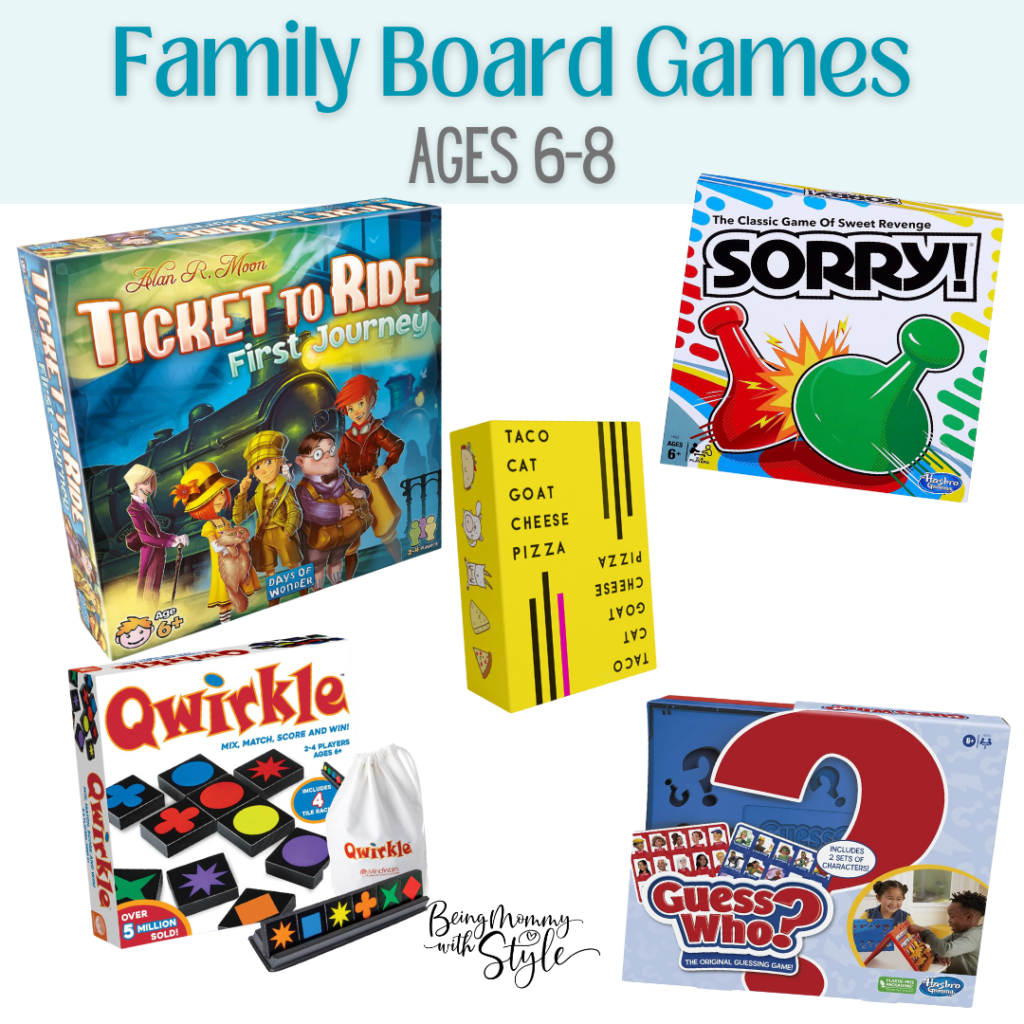
List of the Best Board Games
This list has some of the highest recommended games for younger players looking for new board games. Read ahead to learn about some of our favorite picks!
If you have older children, check out our favorite board games for tweens and teens, ages 10-14 as well!
What’s Important to 6-8 Year Olds
When it comes to board games for 6-8 year olds, it’s essential to understand their cognitive and physical development, attention spans and patience, and the importance of playtime. Many of these games are also great to play with older kids as well, so it is something that can continue growing with them unlike the preschool games that are more designed for the 3-5 year old crowd.
Cognitive and Physical Development
At this age, children are developing their critical thinking skills and hand-eye coordination. They are also pre-readers, so games that require reading may not be suitable. Board games that involve matching, sorting, and counting are great for this age group. These games help children develop their problem-solving skills and encourage them to think creatively.
Attention Spans and Patience
6-8 year olds have a relatively short attention span and may not have the patience to sit through long games. Therefore, it’s important to choose games that are easy to learn, quick to play, and have a clear ending. Games that require too much waiting or have too many rules may cause frustration and disinterest in the game.
Importance of Playtime
Playtime is an essential part of a child’s development, and board games are an excellent way to encourage social interaction and strengthen relationships. Playing board games with children helps them develop their communication skills, learn how to take turns, and build their confidence. It’s also a great way for parents and caregivers to bond with the children and create lasting memories.
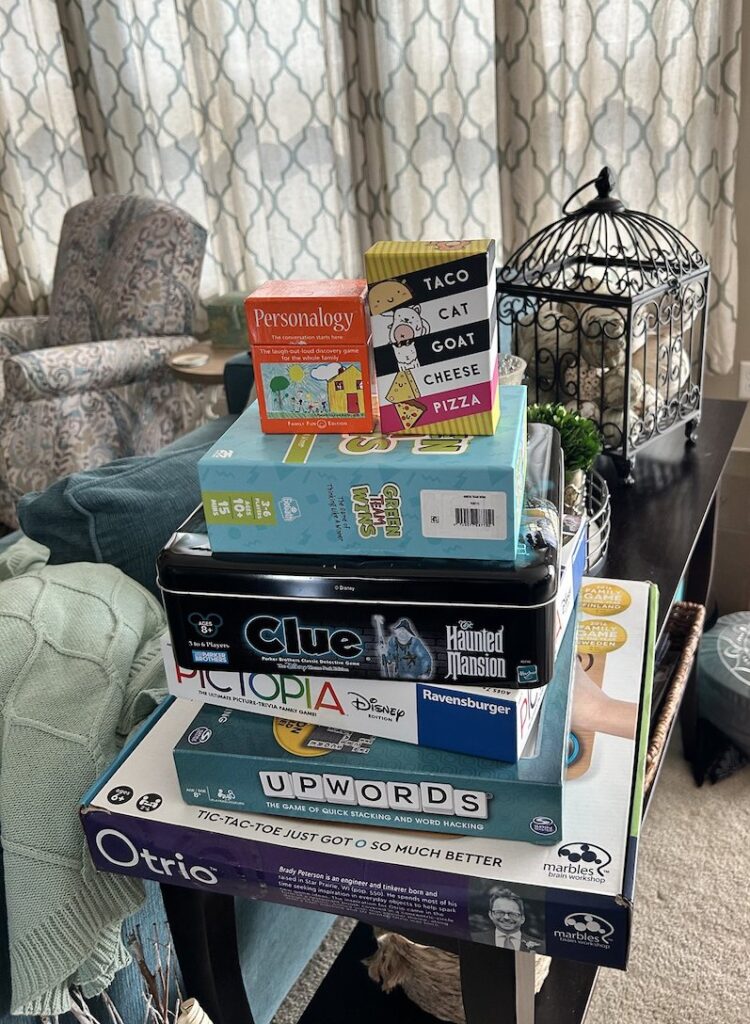
In conclusion, understanding the cognitive and physical development, attention spans and patience, and the importance of playtime is crucial when choosing board games for 6-8 year olds. By selecting age-appropriate games that are easy to learn, quick to play, and encourage critical thinking skills, parents and caregivers can provide a fun and educational experience for children.
Top Board Games for 6-8 Year Olds
When it comes to selecting the best board games for 6-8 year olds, there are a variety of options available. From cooperative games to strategy games and classic family games, there is something for every child’s interest. Here are some of the top board games for 6-8 year olds:
Cooperative Games
Cooperative games are a great way to teach children teamwork and collaboration. One of the best cooperative games for this age group if your kids are on the younger side of the age range, is “Outfoxed!” In this game, players work together to solve a mystery and catch the culprit before they escape. Another great cooperative game for younger players is “Hoot Owl Hoot!” where players work together to help the owls fly back to their nest before sunrise.
Strategy Games
Strategy games are perfect for children who love to use their problem-solving skills. “Qwirkle” is a great strategy game that challenges players to create lines of tiles that share a common attribute. “Sequence for Kids” is another great strategy game that involves placing chips on a board to create a sequence.
Classic and Family Games
Classic and family games are always a hit with children. “Candy Land” is a classic game that has been enjoyed by generations of children. It is a simple game that involves moving along a path and collecting candy. “Chutes and Ladders” is another classic game that teaches children about consequences and rewards.
Card Games
Card games are a great way to teach children about numbers and strategy. “Uno” is a classic card game that involves matching colors and numbers. “Sleeping Queens” is another great card game that involves collecting queens and using special cards to defeat opponents.
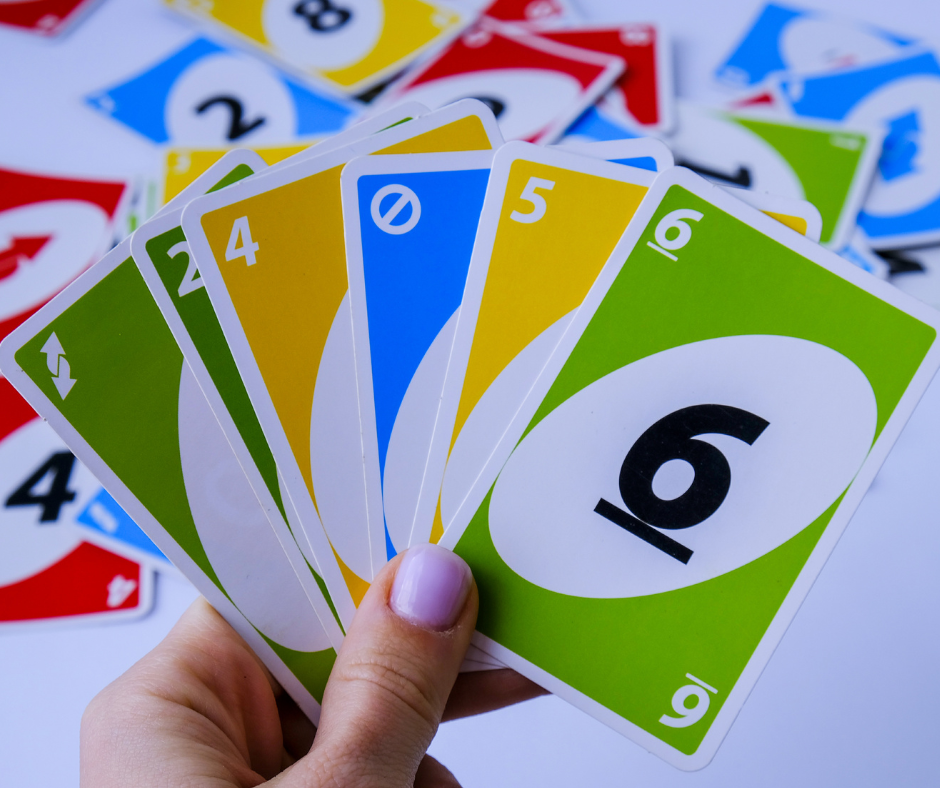
There are plenty of great board games for 6-8 year olds. Whether you are looking for educational board games or just some fun family games, there is something for everyone.
Game-Specific Insights
Ticket to Ride: First Journey
Ticket to Ride: First Journey is an excellent game for children aged 6-8 years old. The game is easy to learn, and the rules are straightforward. Players collect train cards and use them to claim routes on the board, trying to connect the cities on their tickets.
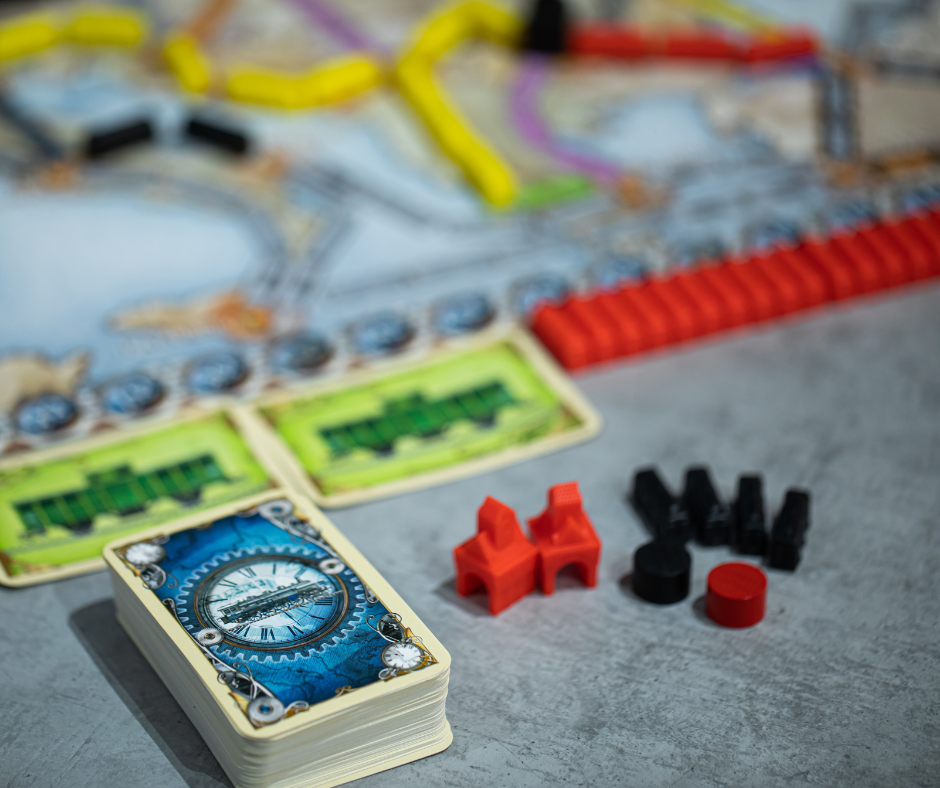
The game teaches children about geography and planning skills. It also encourages them to think strategically and make decisions based on the cards they have in their hands. The winner is the player who completes the most tickets and has the longest continuous route.
Outfoxed
Outfoxed is a cooperative game that encourages children to work together to solve a mystery. Players take on the roles of detective foxes trying to solve a crime committed by a sly fox.
The game teaches children about logic, deduction, and communication. Players must work together to collect clues, eliminate suspects, and catch the culprit before they escape. The game is easy to learn, and the rules are straightforward.
Catan Junior
Catan Junior is a great game for children who enjoy strategy and building games. Players collect resources and use them to build pirate hideouts and ships on the board. The game teaches children about resource management, trading, and cooperation.
The winner is the player who builds all of their hideouts and ships first. The game is easy to learn, and the rules are straightforward. It encourages children to think creatively and use their imagination to build their pirate empire.
Dragonwood
Dragonwood is a game that combines strategy and luck. Players collect cards and use them to defeat creatures in the forest. The game teaches children about probability, risk-taking, and decision-making.
Players must decide when to use their cards to defeat creatures and when to hold onto them for later. The winner is the player who has the most victory points at the end of the game. The game is easy to learn, and the rules are straightforward.
Sequence for Kids
Sequence for Kids is an excellent game for children who enjoy matching games. Players collect cards and try to place chips on the corresponding pictures on the board. The game teaches children about pattern recognition, strategy, and planning.
The winner is the player who gets four chips in a row on the board. The game is easy to learn, and the rules are straightforward. It encourages children to think creatively and use their imagination to make connections between the cards and the board.
Best Family Games
If you’re planning a family game night and looking for the best board games for a crowd, here are some ideas that work when you have younger players in the 6-8 year old age range!
Taco Cat Goat Cheese Pizza is a fast-paced game and is great for younger children, as well a wide range of skill levels. My younger daughter loves this fun card game, and it doesn’t take a long time to get to a winner.
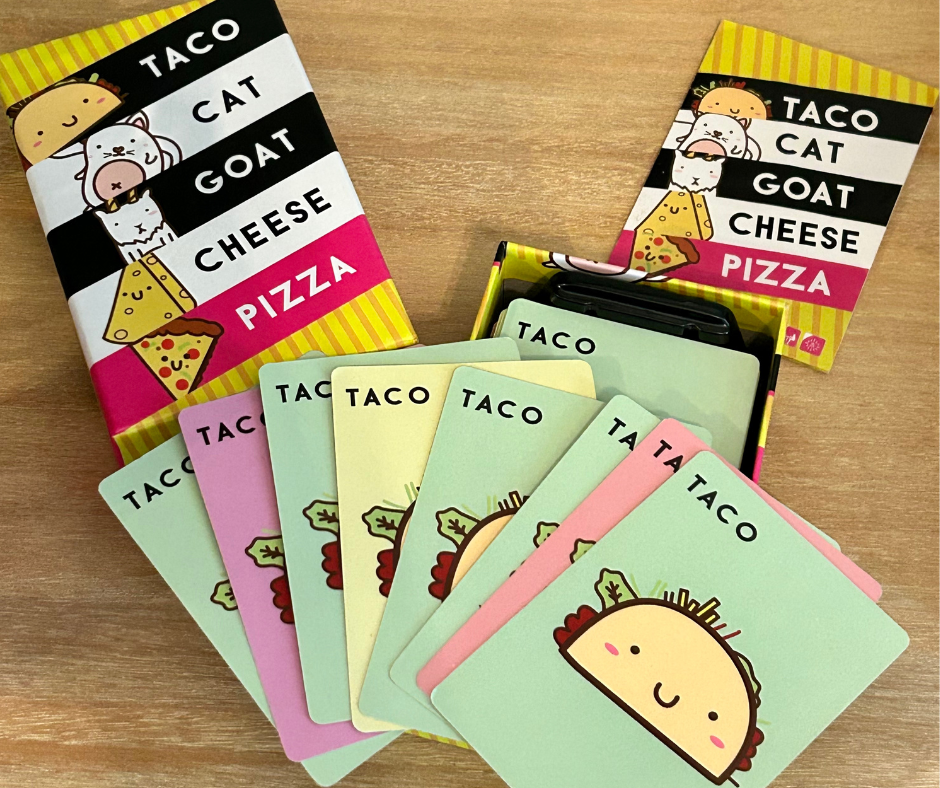
Each person gets a pile of cards and when the picture matches the word you’ve said outloud – everyone has to slap their hand on the pile and the last one to put their hand down has to take all of the cards! First one out of cards wins!
If you have both younger and older siblings that want to play together, playing a game with a fun fandom that everyone likes, like Harry Potter or Disney, is a great way to bring everyone together. If you’re a Disney family, consider a Disney trivia night.
If your kids are all into Harry Potter, there are a number of fun games for fans of the book series that would be a great fit for a movie and game night! (Don’t forget the butter beer and chocolate frogs!)
And one of our favorite games to play as a family is Otrio, another fast moving game that keeps everyone on their toes!
Criteria for Selecting Board Games
When selecting board games for 6-8 year olds, there are several criteria that should be considered to ensure that the game is both engaging and educational. The following subsections highlight some of the key factors to consider when selecting a board game for this age group.
Educational Value
Board games can be a great way to help children develop a range of skills, from problem-solving and critical thinking to social and emotional skills. When selecting a board game, it is important to consider the educational value of the game. Look for games that require players to use their minds and think strategically, as well as games that encourage cooperation and communication.
Engagement and Fun
One of the most important factors to consider when selecting a board game for 6-8 year olds is engagement and fun. Children in this age group have short attention spans and may quickly lose interest in a game that is too challenging or not engaging enough. Look for games that are easy to learn but still offer a challenge, as well as games that are visually appealing and have a fun theme.
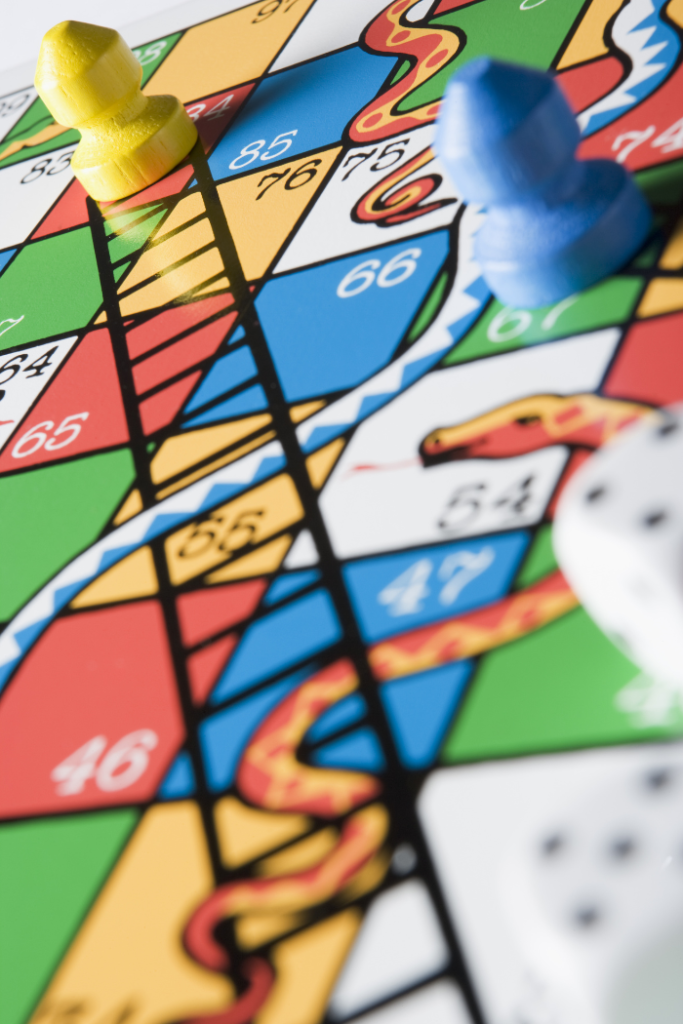
Game Duration
The duration of a game is another important factor to consider when selecting a board game for 6-8 year olds. Children in this age group may not have the patience for games that take too long to play, so it is important to choose games that can be played in a reasonable amount of time. Look for games that can be completed in 30 minutes to an hour.
Number of Players
Finally, it is important to consider the number of players when selecting a board game for 6-8 year olds. Look for games that can be played with a range of players, from two to four or more. This will ensure that the game can be played with siblings, friends, or even parents, and will help to keep children engaged and entertained.
In summary, when selecting board games for 6-8 year olds, it is important to consider factors such as educational value, engagement and fun, game duration, and number of players. By considering these factors, parents and educators can choose games that will not only be entertaining but also help children develop a range of skills and abilities.
Enhancing Skills Through Board Games
Board games are a great way for children to have fun while also developing important skills. In this section, we will explore how playing board games can enhance critical thinking and strategy, teamwork and communication, as well as dexterity and coordination.
Critical Thinking and Strategy
Many board games require players to think critically and develop strategies to win. Games like chess, checkers, and strategy-based games like Risk and Settlers of Catan help children develop their critical thinking skills. These games require players to analyze the situation, think ahead, and make informed decisions. By playing these games, children learn how to think critically, weigh their options, and make the best decision possible.
Teamwork and Communication
Board games can also help children develop teamwork and communication skills. Games like Pandemic, where players must work together to save the world from a deadly disease, require players to communicate and work together to achieve a common goal. Children learn how to communicate effectively, listen to others, and work together to achieve a common goal.
Dexterity and Coordination
Board games can also help children develop their dexterity and coordination skills. Games like Jenga, Operation, and Twister require players to have steady hands and good hand-eye coordination. These games help children develop their fine motor skills, hand-eye coordination, and dexterity.
In conclusion, board games are a great way for children to have fun while also developing important skills. By playing board games, children can enhance their critical thinking and strategy, teamwork and communication, as well as dexterity and coordination. Parents and educators should encourage children to play board games as part of their overall development.
What About Video Games
As a gaming family, we also play video games together as well! Since we live in the technology era, we don’t see incorporating a bit of technology into our family fun as a bad thing, and embrace playing both traditional board games and videos games on our family fun nights!
We have a Nintendo Switch in our basement family room area and the whole family gets together for fun games of Mario Kart competition. Our girls also have their own Nintendo Switch Lites, and enjoy games like Splatoon and Animal Crossing cooperatively with each other and their friends!

Playing video games is a great way to engage with friends and family at a distance, and not only is it fun but it also incorporates the same strategic thinking that many board games require.
Incorporating Board Games into Family Life
Board games are a great way for families to bond and have fun together. They provide an opportunity for everyone to disconnect from technology and spend quality time with each other. Incorporating board games into family life can create lasting memories and provide educational opportunities for children.
Family Game Nights
One way to incorporate board games into family life is by having regular family game nights. This can be a weekly or monthly event where the whole family gathers to play games together. It is important to choose games that are appropriate for the age range of the children playing.
Family game nights can also be a great way to introduce new games to the family. Each family member can take turns choosing a game to play, and this can help everyone discover new games they may not have played before.
Educational Opportunities
Board games can also provide educational opportunities for children. Many board games are designed to teach children new skills such as counting, reading, and problem-solving. Playing these games can help children develop these skills in a fun and engaging way.
Parents can also use board games as an opportunity to teach their children about different subjects. For example, a game about geography can help children learn about different countries and their capitals.
Creating Lasting Memories
Incorporating board games into family life can create lasting memories for children. Family game nights can become a tradition that children look forward to and remember for years to come.
Playing board games together can also help families bond and strengthen their relationships. It provides an opportunity for everyone to work together towards a common goal, and can help children learn important social skills such as teamwork and communication.
Incorporating board games into family life can provide a fun and engaging way for families to spend time together. It can create lasting memories and provide educational opportunities for children.
Let’s Play – Getting Started with Family Game Night
Family board games can be a great option as they provide an opportunity for children to play with their parents and siblings, promoting social interaction and family bonding. Additionally, many board games for kids are designed to be educational, helping children to develop important skills such as problem-solving, critical thinking, and decision-making.
When playing board games with 6-8 year olds, it is important to be patient and encourage them to take turns and follow the rules of the game. This can help to develop their social skills and teach them the importance of fair play.
Board games provide an opportunity for younger players to learn and develop important skills while spending quality time with their family and friends.
Looking for games for the entire family? Check out our ideas for Family Game Night in this recent post.
You may also find this post helpful:

** All opinions are my own. This post contains affiliate links. Being Mommy with Style is a participant in the Amazon Services LLC Associates Program, an affiliate advertising program designed to provide a means for sites to earn advertising fees by advertising and linking to amazon.com. As an Amazon Associate, I earn from qualifying purchases.

[…] Best Board Games for Kids Ages 6-9 […]